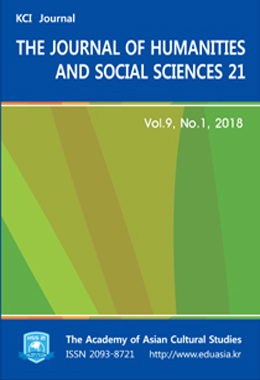현대조직에서 유연한 조직으로의 변화는 성과중심적인 경쟁을 유발시켜 조직 구성원들 간의 신뢰를 어렵게 만들기에 조직 내에서 신뢰연구의 중요성이 높아지고 있다. 본 연구에서는 리더신뢰를 인지적 신뢰와 정서적 신뢰로 구분하여 리더신뢰, 조직시민행동, 리더동일시 간의 관계를 검증하였다. 본 연구의 결과를 살펴보면 첫째, 인지적 신뢰는 조직시민행동에 정의 영향을 미쳤고 둘째, 정서적 신뢰는 조직시민행동에 정의 영향을 미쳤다. 셋째, 인지적 신뢰와 조직시민행동 간의 관계에서 정서적 신뢰는 완전 매개역할을 하는 것으로 나타났다. 넷째, 정서적 신뢰와 조직시민행동 간의 관계에서 리더동일시는 조절효과가 있는 것으로 나타났다. 본 연구의 의의로 리더신뢰 연구에서 기존에 다루어지지 않은 조절변수인 리더동일시를 설정하여 리더신뢰가 조직시민행동에 영향을 미치는 과정을 실증한 점이며 후속연구로 조직수준에서 신뢰의 효과를 검증하는 조직신뢰,조직시민행동,조직동일시간의 관계에 대한 연구를 제안한다.
The change from a modern organization to a flexible organization leads to performance-oriented competition, making trust among the members of the organization difficult, and the importance of trust research in the organization is increasing. In this study, the relationship between leader trust, organizational citizenship behavior, and leader identification was verified by separating leader trust into cognitive trust and affective trust. The results of this study are as follows: First, cognitive trust has positive effects on organizational citizenship behavior. Second, affective trust has positive effects on organizational citizenship behavior. Third, affective trust plays a mediating role in the relationship between cognitive trust and organizational citizenship behavior. Fourth, in the relationship between affective trust and organizational citizenship behavior, leader identification has a moderating effect. The implication of this study is that this research demonstrates the process by which leader trust affects organizational citizenship behavior by establishing leader identification, a control variable that has not been addressed previously in leader trust research and the follow-up study suggests a study on the relationship between organizational trust, organizational citizenship behavior, and organizational identification, which verifies the effect of trust at the organizational level.


